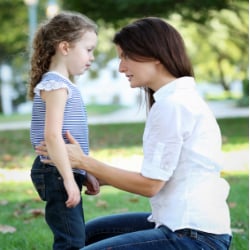
How to help a child understand cancer
20 September 2012
The impact of a cancer diagnosis can reach far beyond the patient. It has a ripple effect on all family members – from the oldest to the youngest. Children with an older relative affected by cancer will be particularly inquisitive. It helps to keep in mind in a situation like this, that children’s curiosity, concern – and yes, worry – may not be apparent at first glance. In fact, these emotions may manifest themselves in different ways – including misbehaviour, anger, and depression.
So, how do you bring up this touchy subject with children? As a first step, be aware that this is not easy for anyone. And take time to prepare yourself. You might want to put yourself in their shoes. Think back to similar situations when you were their age. You probably wanted to know what was going on – especially since a myriad of worst-case scenarios may have unfolded in your mind if the grown-ups weren’t telling you anything.
So, as always for any sensitive situation, communication is key. Choose an appropriate time and place to break the news to your children. It’s no easy task, and it may require some preparation, but sooner is better than later. They’ll want to know – and better they should hear it from you than from a schoolmate, neighbour, or another well-meaning relative.
Let them know you are always ready to listen to them and answer any questions they might have. You don’t have to give them all the information all at once, since you’re beginning a two-way dialogue. And you will want to adjust what you tell them based on their ages and attention spans. The act of communication itself is just as important as the content in situations like this. Give your children a chance to share their concerns, and show that you’re focusing on these.
Adjust your language accordingly. Depending on their ages and comprehension levels, it may be enough just to tell them you are sick, and that you (or the relative in question) will have to take medicine to get better.
Think about how this may change their lives. Will someone else be driving them to their after-school events? They’ll want to know.
You can also let them know that this illness is not contagious. Also, keep in mind that many children will blame themselves in a situation like this. Make sure they understand that it is not their fault.
Your doctors, nurses, social workers and counselors are valuable resources. They can help you, and also put you in touch with other useful information sources, such as books, pamphlets, Web sites, videos and support groups.
Child Life Services – in-house and at your service
If your child is the one in your family who has received a cancer diagnosis, you may wish to consider the Montreal Children’s Child Life Services. This department is one of the first of its kind in North America, in operation since 1936. The Child Life Services team specializes in coping strategies for children and their families.
